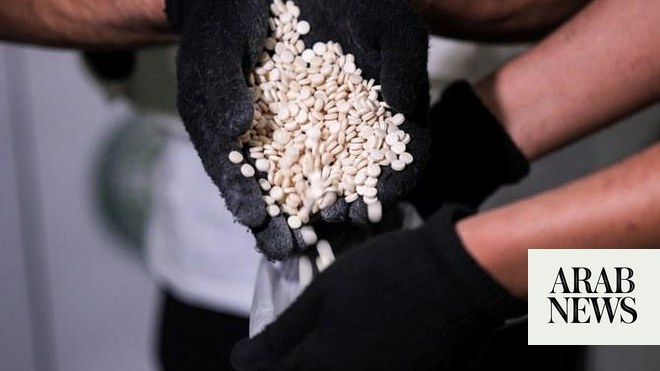
For generations, marginalized communities in Canada have feared that heavy industry is slowly poisoning their air, land and water.
Aamjiwnaang First Nation, a small Indigenous reserve in Ontario surrounded on all sides by chemical facilities, has recorded anomalies in birth rates. Residents in Lincolnville, a Black community in Nova Scotia, suspect that a nearby landfill is the source of high cancer rates.
Ingrid Waldron, a sociology professor at Dalhousie University, has spent years interviewing residents of such communities, collecting data on environmental racism – the disproportionate presence of heavy industry and waste close to Black and Indigenous communities.
“It’s a term that brings them together with this collective shared experience around pollution and contamination in their community,” said Waldron, who turned the years of research into the book, There’s Something in the Water, and a documentary directed by actor Elliot Page.
Now, Waldron has teamed up with a Canadian lawmaker to transform that research into federal legislation that would, for the first time, force Ottawa to collect data on the effects of heavy industry on marginalized communities.
Introduced by Liberal member Lenore Zann and supported by former Green Party leader Elizabeth May, private member’s bill C-230 would require the federal government collect data on where environmental hazards such as pulp mills, dumps, mines are located – and study whatever links exist between race and health. The bill would also require Ottawa to compensate communities whose air, water and land is poisoned by industry, and to ensure they are consulted on future development projects.
“One of the biggest mistakes colonial society has made is the belief that some races and genders are more important or valuable than others and therefore that some peoples and communities are less deserving of a healthy environment than others,” Zann told parliament.
In late March, C-230 passed its second reading in committee, bolstering hopes among its supporters that the long shot private member’s bill could defy the odds and become law. After clearing parliament’s environmental committee on Monday, the bill is due back to the House of Commons for a third reading.
Zann’s previous attempts to pass similar legislation have fallen short, but she draws hope from recent action by Joe Biden, who has pledged to combat environmental racism in the US.
In January, Biden signed an executive order to develop policies that would “address the disproportionate health, environmental, economic, and climate impacts on disadvantaged communities”.
Canada’s failure to fully address the legacy of industrial waste sites near marginalized communities has caught the attention of the United Nations.
In a visit to Canada, human rights expert Baskut Tuncak found “blatant disregard for Indigenous rights”.
“Canada has the financial ability and the technical capacity to do things better. It still lags behind many of its peers in terms of industrialized countries. When it comes to environmental performance, its record on compliance leaves a lot of room for improvement,” he previously told the Guardian.
While it is rare for private member’s bills to become law, Waldron believes Canadian society is more aware of the links between race, economics and environment.
“Black Lives Matter and Covid got people talking about systemic inequalities like never before,” said Waldron. “It created this environment where people were having discussions more about racism and systemic racism.”
The bill may have to pass a potential third reading in the House of Commons in September before it can become law – and faces stiff opposition from both the Conservative and Bloc Quebecois parties.
Because the governing Liberals hold a parliamentary minority, they require the support of other parties to pass legislation. The bill also faces the prospect of languishing in parliament without a final vote in the event a snap election is called.
But Waldron remains hopeful.
“People are finally thinking about talking about systemic inequalities and its various forms in a way that they never have before,” she said. “It’s been a journey. It’s been frustrating. But maybe the time has finally come.”












